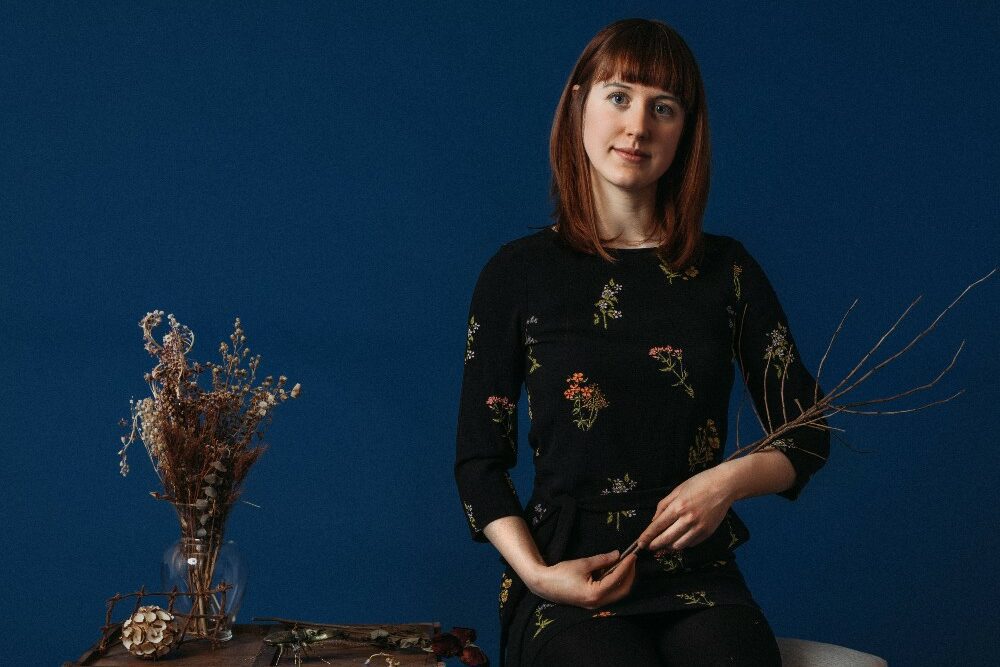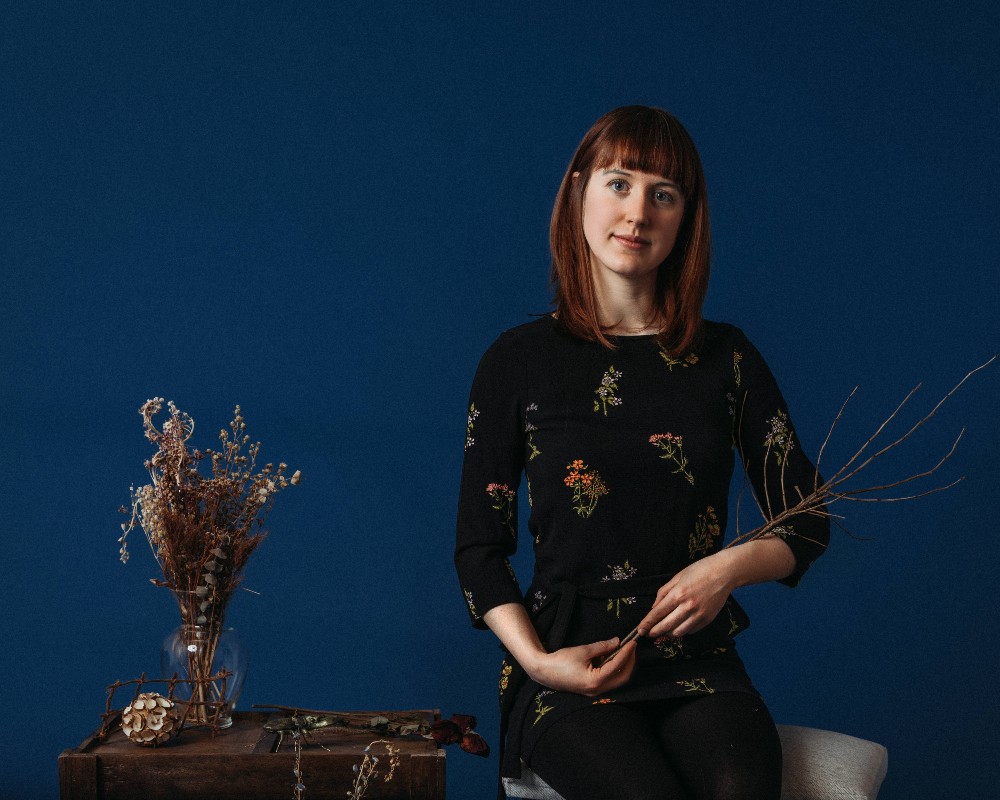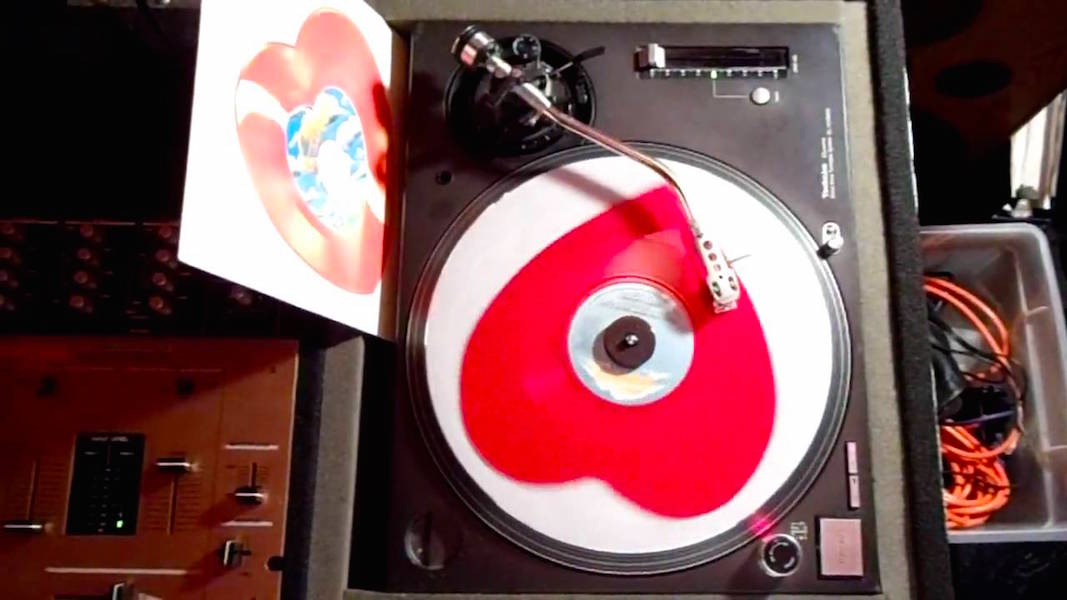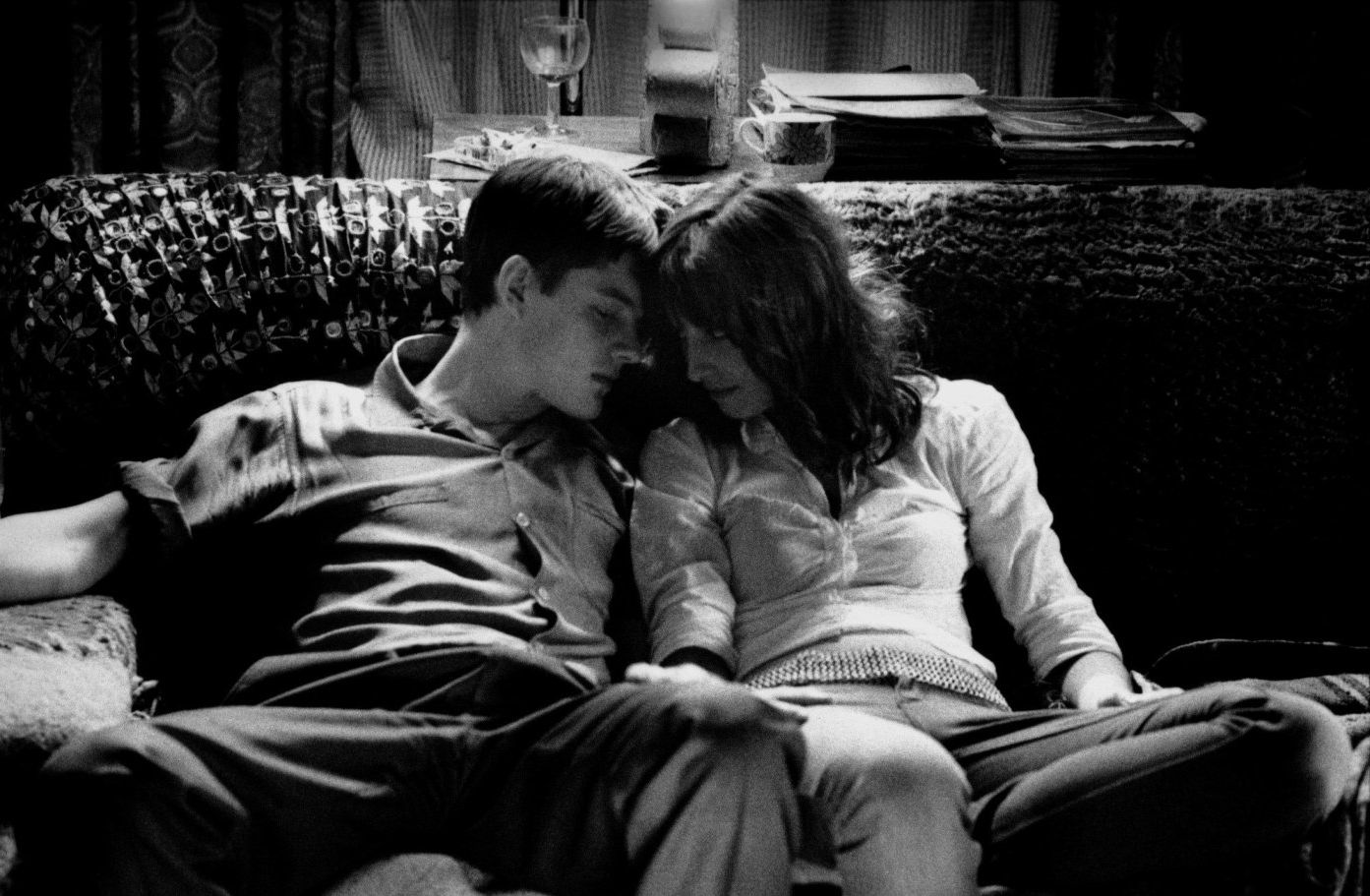

It feels almost like a cruel fate for anyone who cares deeply about music: we tend to build entire relationships with like-minded individuals around the songs we bond over. From attending concerts with loved ones to sharing mixtapes that say what we can’t, or even just putting on a record while making dinner (or making out), music helps us build stronger connections. It’s not until those relationships deteriorate, souring memories and ruining those songs in the process, that we see just how disastrous this can be. When a song brings back the memory of love lost, sometimes it’s too painful to ever listen to that song again.
Emily Goldstein, who releases her solo work under the moniker Mountainess, has experienced this all-too-common scenario firsthand. Her latest single, “Soundtrack,” premiering today via Audiofemme, unearths the artist’s long-buried aversions to Sam Cooke and Mount Eerie, artists she couldn’t listen to for years following a bad break-up with a former bandmate. “‘You Send Me’ had been our song. It wasn’t even just that song – I couldn’t listen to Sam Cooke, who has one of my favorite voices ever. It just brought me back immediately,” Goldstein remembers. She started writing “Soundtrack” years later, when she was finally able to revisit that music, and could reflect on its effect over her without the residual pain of the break-up. “I recognize that some of that power – well, all of that power – is kind of given in a way, but it can feel like [an ex can] take the things you love,” she says. “You don’t just lose them and the relationship, you lose anything that you associated with the relationship.”
She felt immediate validation when she shared “Soundtrack” in a songwriting workshop at Brown University, and the other attendees said they’d been through it, too. “That was a very lovely feeling to have. It’s really easy to write stuff and feel like other people are gonna connect to it because they share your experiences, but then they don’t all the time,” Goldstein confides. “I feel like when you have that moment with a song that becomes such an important form of connection.”
Over warbly synth, with crystal-clear delivery, Mountainess expresses relatable nuggets of wisdom: “I let you build the soundtrack/I wish I hadn’t done that/You claimed and gave those tunes with a reckless abandon/Now even when they’re droning low in some department store/You’re there insisting the songs are yours.” A visualizer by longtime Mountainess co-conspirator Hope Anderson scrawls Goldstein’s poignant lyrics across the label of a cassette tape, the perfect hit of heartfelt nostalgia for those pre-streaming days, when personalized mixes stood in for love letters.
“Soundtrack” is the third single from Goldstein’s second Mountainess EP, out February 12. Its five tracks center on the empowerment she felt after moving from Boston to Rhode Island and completing her first EP as a solo performer, which she released in 2017. The ambitious self-titled debut saw her exploring a lost family history over a backdrop of swooning string arrangements, a decision she pursued in an effort to differentiate her musical output from the “dramatic, sort of theatrical rock” she played with her previous band.
Striking out alone was exciting, but scary at first, she says. “I’d always had collaborators – and they’d always been male collaborators. And I just didn’t feel very confident in my ability to produce anything without their feedback,” she admits. “Ultimately, [Mountainess] has grown to have collaborators in it, but it started out just as me playing keyboard in the various folky venues around Providence.”
Though proud of her debut and what she’d learned from the process, the emotional weight of the material and the belabored process of adding strings prompted a shift in direction. “After doing it, it was like, oh wow, I wanna write things that feel a little more pop,” Goldstein says. “I wanted to move toward [themes of] empowerment, cause I think I was a feeling more empowered after writing that [first EP]. I had to get that out of my system, but it was very heavy and emotionally raw.”
Goldstein’s hard-won confidence is apparent from the first track on the new EP, which kicks off with “Attention,” a single she released in September. Her straightforward, triumphant vocal emphasizes her background in musical theater, while she sings clever turns of phrase about the travails of performing for a living: “For every guy who thought I’d die without his bland suggestion/To be less or more or something for his dubious affection/Well, I won’t apologize/for chewing the scenery/Your attention, please!”
“I had this experience a lot, but playing alone kind of amplified it: every time I played, I would get unsolicited feedback, always from white dudes. I actually started keeping a little journal of it. Sometimes it was even positive, but none of it felt good to receive,” Goldstein says. “Being a performer, being also a bit of an introvert in my private life, I am asking for attention – that song is about exploring what I want out of that attention and setting my boundaries within that.”
Another single from the EP, the doo-wop infused “Vacation,” was written during a residency in Martha’s Vineyard, which Goldstein spent creating an as-yet unproduced musical based on Lady Chatterley’s Lover. “It was such a surreal experience. It was February [2019], I was completely alone for that whole week, and being around that kind of wealth created this character that could just vacation [on a whim],” Goldstein explains. Normally composing on keys, “Vacation” was the first song she’s written on guitar, which she says freed her up to go in a different direction with it. The kitschy, light-hearted lyric video was shot by her partner, Anthony Savino, who also plays on the EP alongside drummer John Faraone and producer Bradford Krieger.
The EP was recorded at Big Nice Studio in Lincoln, Rhode Island, right before the pandemic hit. It just so happened that around the same time, Goldstein moved again – this time to Los Angeles, to work in animation. As surreal as it was settling into a new city during lockdown, in some ways it mirrors the escapist fantasy baked into the sun-kissed verses on “Vacation”: “Do you even miss me?/Everything is new here, but it’s somehow dreary/I sent you a postcard with no return address/I haven’t heard back yet…”
What’s clear across all three singles is Goldstein’s gift with words. “It’s just the way I’m most comfortable expressing myself; I think I’m more comfortable writing my lyrics than I am talking! It feels very natural,” she says with a laugh. “I have an English teacher mom, so I do have a family that’s big on expressing yourself with your words. I have a pretty non-musical family, so music was definitely like a second language, and I think that’s why lyrics come first – that’s the first path towards expressing myself.”
However wise Mountainess sounds as she dispenses her cautionary tale on “Soundtrack,” she recognizes that certain pitfalls are hard to avoid. “I have not followed my own advice at all! I had this idea that I was just going to maybe pursue people whose lives didn’t revolve around music, but I have not been successful in keeping that,” she laughs. “If music is what you love, it’s really one of the major driving forces towards connection. I do think, just like the break-up itself, it takes time – but eventually you will be able to come back to the songs. They’ll maybe hold a little bit of an ache, but sometimes, that ache is good. Maybe it actually ends up adding some good weight to those songs.”
Follow Mountainess on Facebook for ongoing updates.




